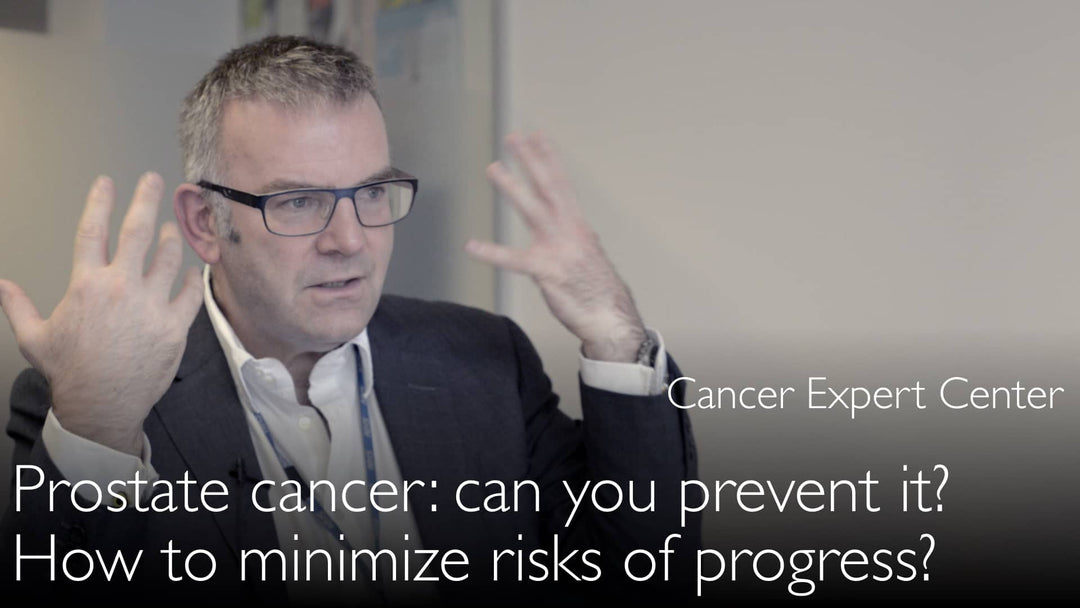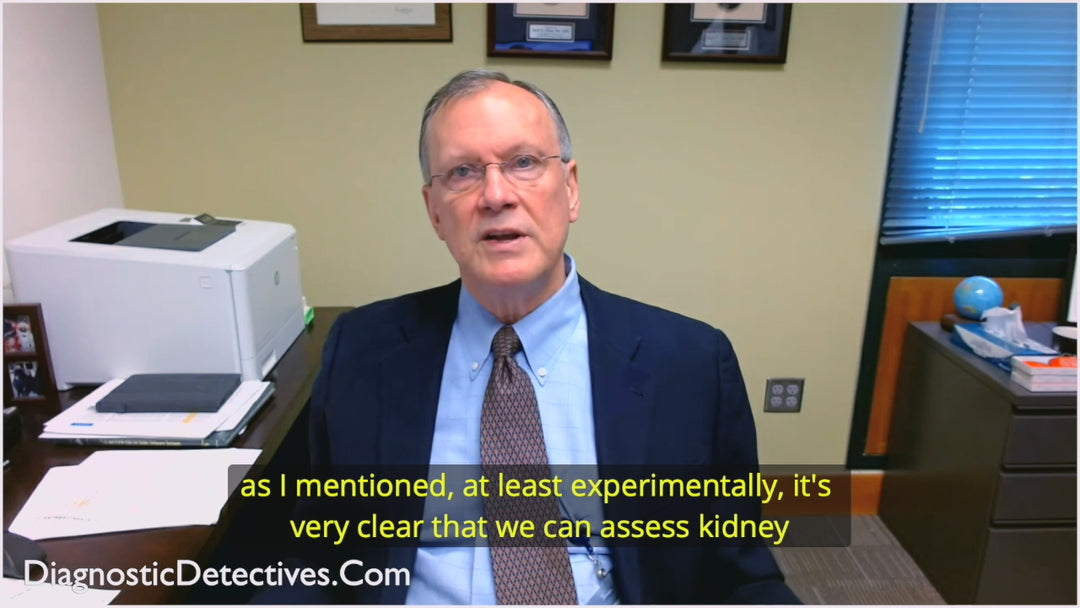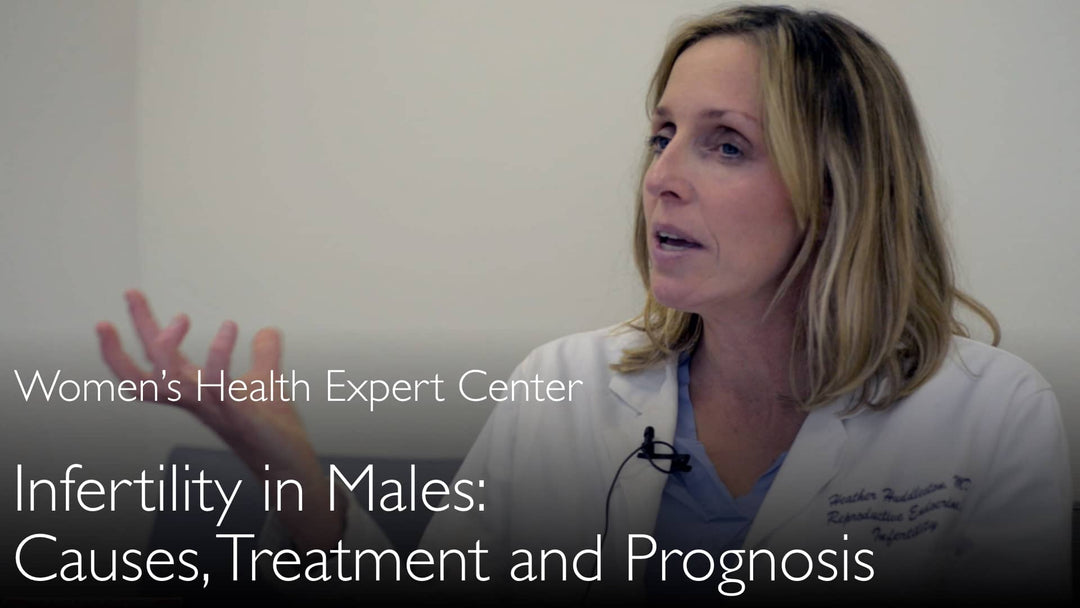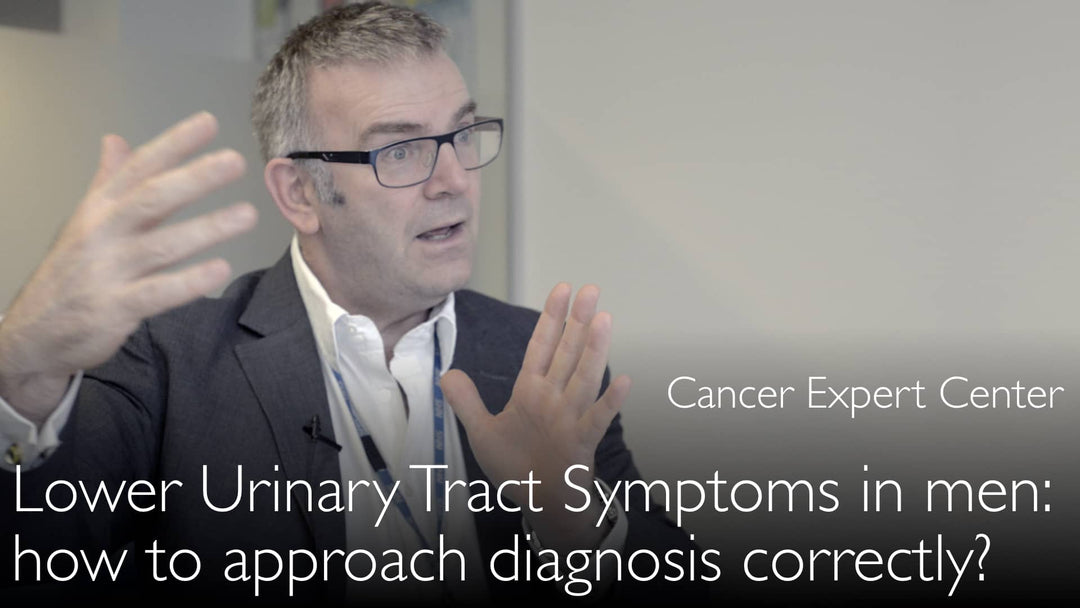Leading expert in urology and prostate cancer, Dr. Mark Emberton, MD, explains proven and potential strategies for prostate cancer prevention, detailing the only medication shown to reduce cancer risk by 25% and the strong evidence supporting weight loss and exercise to improve outcomes after diagnosis.
Proven Strategies for Prostate Cancer Prevention and Risk Reduction
Jump To Section
- Dutasteride for Prostate Cancer Prevention
- Low BMI and Prostate Cancer Survival
- Exercise and Diet for Prostate Cancer
- Glucose Levels and Cancer Progression
- Challenges of Dietary Clinical Trials
- Lifestyle Changes After Diagnosis
Dutasteride for Prostate Cancer Prevention
Dr. Mark Emberton, MD, states that only one medical intervention has been definitively proven to change the natural history of prostate cancer. The REDUCE study demonstrated that the medication dutasteride, a 5-alpha-reductase inhibitor often described as a "soft hormone," reduced the period prevalence of prostate cancer by 24% over the study period. Men randomized to take dutasteride experienced a 25% reduction in the presence of prostate cancer on repeat biopsy.
Despite this significant reduction in cancer risk, Dr. Mark Emberton, MD, notes that the FDA chose not to recommend dutasteride as an official chemoprevention method for prostate cancer, making it unavailable for widespread prophylactic use.
Low BMI and Prostate Cancer Survival
A strong non-pharmacological signal for prostate cancer risk reduction involves maintaining a low Body Mass Index (BMI). Dr. Mark Emberton, MD, explains that data, largely derived from studies of men with higher-risk prostate cancer, indicates that a low BMI has a favorable effect on both prostate cancer-specific survival and overall survival.
This correlation is supported by evidence from numerous animal models, suggesting a biological mechanism where body weight directly influences cancer behavior. Achieving a low BMI is a central goal of the lifestyle advice given to patients concerned about prostate cancer progression.
Exercise and Diet for Prostate Cancer
Dr. Mark Emberton, MD, emphasizes that a low Body Mass Index can be achieved through dedicated exercise, dietary changes, or a combination of both. While he clarifies this is non-medical advice, various regimens exist that focus on reducing BMI.
When patients ask what they can do to stop prostate cancer from progressing, Dr. Emberton tells them the "thing they don't want to hear": to lose weight and exercise. He acknowledges it sounds like a generic answer but confirms it is a strategy that has been shown to work across many diseases and cancer types.
Glucose Levels and Cancer Progression
A potential biological explanation for the benefits of weight loss and exercise involves resting blood glucose levels. Dr. Emberton suggests that glucose may be an important factor affecting the progression of cancer.
Elevated blood glucose can provide a fuel source for cancer cells. Interventions like diet and exercise are effective methods for lowering circulating glucose levels, which may in turn help to slow or prevent cancer growth, offering a mechanistic link between lifestyle changes and improved outcomes.
Challenges of Dietary Clinical Trials
Dr. Mark Emberton, MD, highlights the significant difficulty in conducting robust clinical trials for dietary and lifestyle interventions. These studies require many thousands of male participants to achieve statistically significant results and are plagued by high rates of "contamination," where participants in control groups independently adopt the intervention being studied.
These logistical and methodological challenges make it difficult to generate the same level of ironclad evidence as pharmaceutical trials, which is why strong signals from observational data and animal studies remain so important for guiding patient advice.
Lifestyle Changes After Diagnosis
The period immediately following a cancer diagnosis presents a unique opportunity for motivating lasting lifestyle change. Dr. Emberton refers to this as a "teachable moment," a phase where patients are often most motivated to take action to improve their health.
He observes that if a patient is not able to commit to losing weight and exercising after a cancer diagnosis, they likely never would. Therefore, clinicians can use this window of high motivation to empower patients with actionable strategies that can positively impact their cancer journey and overall survival.
Full Transcript
Dr. Anton Titov, MD: How to prevent prostate cancer? How to reduce the risk of prostate cancer progression? A leading cancer expert explains prostate cancer prevention methods that were proven to work.
Dr. Anton Titov, MD: How to prevent prostate cancer? What are lifestyle, nutrition, and maybe chemoprevention strategies that have been shown to prevent prostate cancer?
Dr. Mark Emberton, MD: How to prevent prostate cancer is a question that most patients ask their urologist at least once. And our answers are not very satisfactory to the patients. Because the patients want to do something to change their lifestyle. They want to change their dietary habits. They want to take a supplement that they feel will arrest the progression of prostate cancer.
Only one intervention has been shown to change the natural history of prostate cancer, and that's dutasteride. In the REDUCE study, dutasteride reduced the period prevalence of prostate cancer by 24% over a period of time. Dutasteride is a soft hormone.
Men randomized to dutasteride had a 25% reduction in the presence of prostate cancer on repeat biopsy. That study was quite controversial. We don't have time to go into the details.
The FDA chose not to recommend dutasteride as a chemoprevention method for prostate cancer, despite a 25% reduction in prostate cancer. Had they done so, I think we would all be taking dutasteride. It would be in wide use, but it's not.
That's the only one that's been shown truly to work in a tight, well-designed, randomized clinical study. There is another signal that seems to be quite strong. This is largely being derived in men with higher-risk prostate cancer.
It is being of low weight, of low Body Mass Index, seems to have a favorable effect on prostate cancer-specific survival and overall survival. Low body mass index can be achieved through exercise or through diet, or both. And many of the regimens are out there.
It is a non-medical advice. They do involve diets that reduce Body Mass Index. It may be that the resting blood glucose may be important in affecting progression of cancer. Glucose obviously comes down through diet and exercise.
Dr. Anton Titov, MD: These clinical trials are very hard to do. You need many, many, many thousands of men. There's lots of contamination. And dietary clinical trials are a huge challenge.
But there is a signal suggesting that low weight helps to reduce prostate cancer. It's certainly been shown in animals, in many, many animal models. I think there's a strong signal that low BMI prevents cancer.
People ask me, "What can I do to stop prostate cancer progress?" I tell them the thing they don't want to hear. I tell them to lose weight and exercise.
Dr. Anton Titov, MD: Sounds like a generic answer, but it comes up again and again in many diseases and in many cancers.
Dr. Mark Emberton, MD: Correct! That's something that has been shown to work.
Dr. Mark Emberton, MD: Correct! Actually, if patients aren't able to lose weight and exercise after cancer diagnosis, they never would. So it's a good opportunity. We call it "a teachable moment." That phase after diagnosis is where they're going to be most motivated to change their lifestyle.







